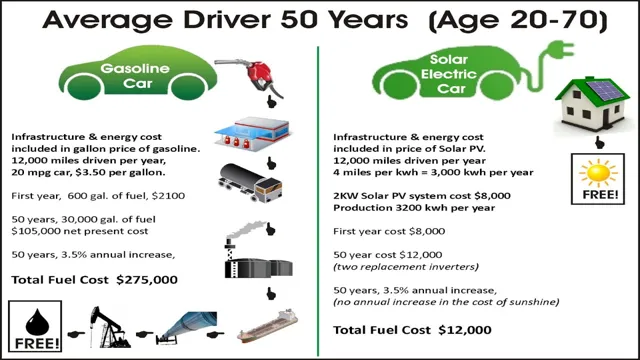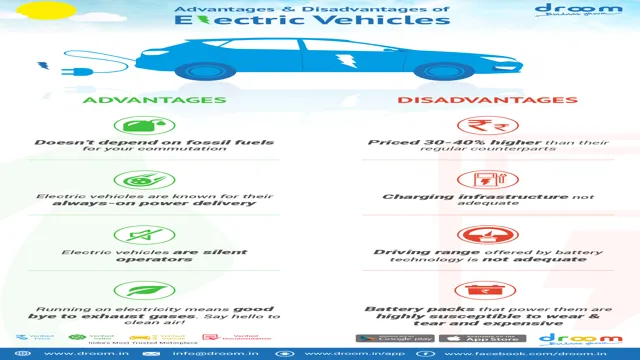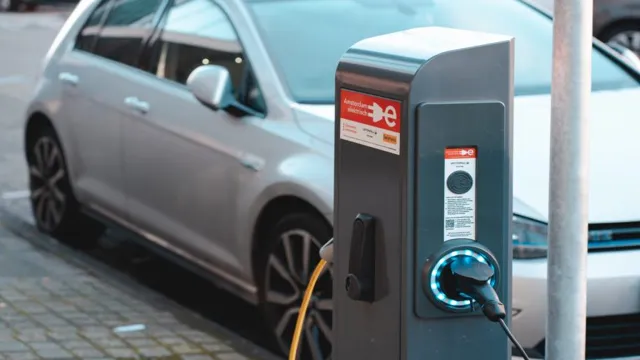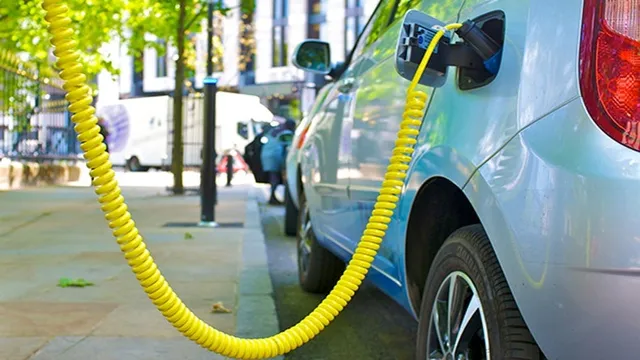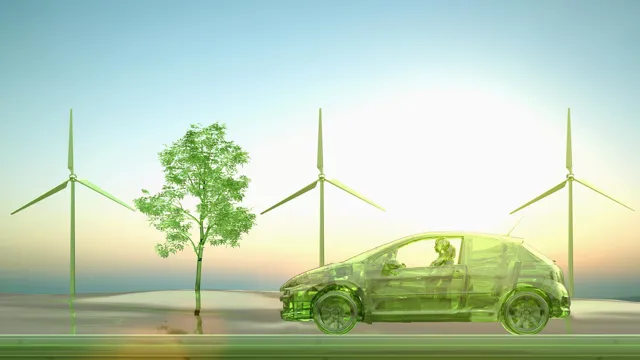Electric vs Gasoline: Exploring the Financial and Environmental Advantages and Disadvantages of Electric Cars
Electric cars versus conventional vehicles – a topic that has been hotly debated in recent years. As the world moves towards a more sustainable future, there has been an increased interest in electric cars as an alternative to conventional vehicles. But what makes these two types of vehicles different? And is switching to an electric car really worth it? In this blog post, we will take a closer look at the differences between electric cars and conventional vehicles, and explore the benefits and drawbacks of both.
So, buckle up and let’s explore the world of electric cars and conventional vehicles!
Costs of Electric Cars
When considering the costs and benefits of electric cars versus traditional vehicles, there are a few things to keep in mind. While electric cars tend to have higher up-front costs, they have a lower overall cost of ownership due to lower maintenance and fuel costs. Additionally, electric cars can be more environmentally friendly, emitting no greenhouse gases and using renewable energy sources.
However, there are still some challenges such as lack of charging infrastructure and limited driving range which may require more planning and flexibility on the part of the driver. Ultimately, it is important to weigh these costs and benefits and determine what is most important for your individual situation.
Higher purchase price
Electric cars have been gaining popularity in recent years due to their numerous benefits, including lower emissions and better fuel efficiency. However, one major drawback that keeps many people from making the switch is the higher purchase price of electric vehicles compared to traditional gas-powered cars. The high cost can be attributed to several factors, such as the cost of lithium-ion batteries, which are essential for powering electric cars.
Additionally, research and development costs are often passed on to consumers in the form of higher prices. However, it’s important to note that although electric cars may have a higher upfront cost, they can lead to long-term savings in fuel and maintenance costs. As the technology continues to evolve and become more mainstream, it’s possible that the cost of electric cars will become more competitive with traditional cars, making them a more accessible option for a wider range of consumers.
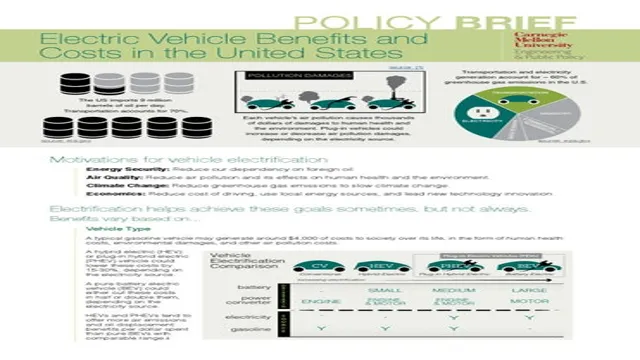
Lower maintenance and fuel costs
Electric cars are not just environment-friendly, but they also offer lower maintenance and fuel costs compared to traditional gasoline-powered vehicles. The maintenance costs for an electric car are lower because they have fewer moving parts, which means there are fewer things that can break down and need repairing. Additionally, electric car owners do not have to worry about oil changes, replacing spark plugs, or any other maintenance that a typical gasoline-powered car requires.
Fuel costs are also significantly lower, with electric cars costing less per mile than gas-powered cars. Although the upfront cost of purchasing an electric vehicle may be higher than a gasoline-powered vehicle, the savings over the life of the car make it a more cost-effective investment. Furthermore, with electric cars becoming more mainstream, the prices are expected to decrease, making them even more accessible to the average consumer.
In conclusion, the lower maintenance and fuel costs of electric cars make them an attractive option for anyone looking to save money on their vehicle expenses while also reducing their carbon footprint.
Government incentives
When it comes to buying an electric car, one of the main concerns is the cost. However, there are government incentives that can help offset these costs and make electric cars more affordable. In the United States, for example, there is a federal tax credit of up to $7,500 for electric car purchases.
Some states also offer additional incentives such as rebates, lower or waived registration fees, or access to high-occupancy vehicle (HOV) lanes. These incentives can reduce the initial cost of an electric car and make them more financially feasible for a wider range of consumers. Additionally, over time, the lower maintenance and fuel costs of electric cars can further offset their higher purchase price.
By taking advantage of these government incentives, consumers can not only save money, but also contribute to a cleaner and more sustainable future.
Benefits of Electric Cars
When considering the costs and benefits of electric cars versus conventional vehicles, there are several advantages to going electric. Firstly, electric cars have lower operating costs due to their more energy-efficient components, resulting in lower fuel costs and maintenance fees. Additionally, electric vehicles produce zero tailpipe emissions, helping to reduce air pollution and improve public health.
Electric cars also offer a smoother and quieter driving experience, with instant torque and smoother acceleration. Lastly, investing in an electric car can provide long-term financial benefits through tax incentives and potential resale value. While the initial cost of electric vehicles may be higher, the long-term benefits and positive societal impact make it a smart choice for those looking to make a sustainable choice.
Lower carbon emissions
Electric cars have numerous benefits, with one of the biggest being lower carbon emissions. They produce significantly less greenhouse gases than traditional gasoline-powered vehicles, which is great news for the environment. In fact, an electric car can reduce carbon emissions by as much as 60% compared to a gas car.
This reduction in carbon emissions is especially important considering the dire situation of our planet’s climate. Investing in an electric car can significantly lower our carbon footprint and reduce the negative impact on the environment. Additionally, by using electricity as fuel, electric cars are much more energy-efficient and economical than gasoline cars.
The benefits of electric cars are clear: they offer a cleaner, greener, and more eco-friendly transportation option. So, why not make the switch to electric and join the growing sustainable movement towards a brighter future for our planet?
Quieter and smoother driving experience
Electric cars offer a plethora of benefits, from lower emissions to improved fuel economy. However, one of the most notable advantages of electric cars is their quieter and smoother driving experience. Unlike traditional internal combustion engines, electric cars use electric motors to power their wheels, which don’t require gears to transmit torque to the wheels.
This results in a much smoother driving experience as electric motors don’t produce the same level of vibration and noise as their gas-guzzling counterparts. In fact, electric cars are often praised for their near-silent operation, making for a more peaceful and comfortable ride. Additionally, electric cars don’t have to worry about shifting gears, providing a seamless and effortless driving experience.
The lack of engine noise also allows drivers to better enjoy the surrounding environment, making for a more immersive and enjoyable driving experience. In conclusion, the quieter and smoother driving experience provided by electric cars offers a refreshing and relaxing twist on traditional driving, making them a compelling option for those seeking a more seamless and enjoyable ride.
Lower dependence on foreign oil
One of the most significant benefits of electric cars is their potential to significantly lower our dependence on foreign oil. This is because electric cars rely on energy from electricity grids, which in turn can be generated from a variety of sources, from wind and solar to nuclear and natural gas. By reducing our reliance on foreign oil, we can become more energy independent and less vulnerable to fluctuations in global oil prices, which can have ripple effects throughout the economy.
Moreover, electric cars can help reduce carbon emissions and improve air quality, leading to a healthier and more sustainable future for us all. So, if you’re in the market for a new car, consider an electric vehicle and help do your part for the environment.
Costs of Conventional Vehicles
When it comes to owning a vehicle, the costs can add up quickly, especially when it comes to conventional gas-powered cars. The initial purchase price may be lower for a traditional vehicle, but the ongoing costs of maintenance, fuel, and emissions can quickly add up. On the other hand, electric cars may have a higher sticker price, but they can often save you money in the long run.
Electric cars require less maintenance since they have fewer moving parts that can wear out over time. They also don’t require gasoline, which can save you money on fuel costs and reduce your carbon footprint. Additionally, many governments offer incentives and tax breaks for those who purchase electric cars, which can help offset the initial purchase price.
While the upfront costs may be higher, electric cars can ultimately save you money and benefit the environment in the long run.
Higher maintenance and fuel costs
When it comes to owning a conventional vehicle, one thing that people have to be prepared for is the higher maintenance and fuel costs associated with it. Keeping a car running at its best involves regular inspections, oil changes, and replacing worn-out parts, all of which can add up over time. Additionally, conventional vehicles consume more fuel than their alternative counterparts, meaning that you’ll have to make more frequent trips to the gas station.
While this may not seem like a big deal, these expenses can really add up over time, potentially costing you thousands of dollars per year. As a result, it’s essential to keep these costs in mind when buying a conventional vehicle and budgeting accordingly.
Negative impact on environment
The costs of conventional vehicles go beyond just the purchase price. They also have a negative impact on the environment. These vehicles emit harmful pollutants that contribute to air pollution and climate change.
The production of these vehicles also requires significant amounts of natural resources and energy, leading to further environmental damage. Additionally, the disposal process for conventional vehicles creates a burden on our environment as they cannot be easily recycled. All of these factors contribute to the overall cost of conventional vehicles, both financially and environmentally.
This is where electric vehicles come in as a greener alternative, as they produce significantly fewer emissions and require fewer resources to produce. Switching to electric vehicles not only benefits the environment, but it can also save you money in the long run. So why not make the switch and help protect our planet?
Benefits of Conventional Vehicles
When deciding between electric cars and conventional vehicles, it’s important to consider the costs and benefits of each option. While electric cars may have lower emissions and operating costs in the long run, conventional vehicles also have their own set of benefits. One of the main advantages of conventional vehicles is their affordability, as they are often less expensive than electric cars at the point of purchase.
Additionally, they are widely available and can be fueled up at gas stations across the country, providing greater flexibility for long-distance travel. Some drivers also prefer the feel and handling of conventional vehicles, which may offer a more engaging driving experience. Ultimately, the decision between electric cars and conventional vehicles will depend on individual needs, preferences, and priorities.
Lower upfront cost
One of the benefits of conventional vehicles is their lower upfront cost. Compared to electric or hybrid cars, traditional gas-powered vehicles typically have a lower sticker price at the dealership. This can be a significant factor for car buyers on a budget, as electric and hybrid cars often come with a premium price tag due to their advanced technology and features.
While fuel costs may be higher in the long run for conventional vehicles, their lower upfront cost can make them a more affordable option for many consumers. It’s important for car buyers to consider their budget and driving needs when deciding on a vehicle, and conventional cars can often be a practical choice for those who prioritize cost-effectiveness.
More charging and refueling options
When it comes to the benefits of conventional vehicles, there are a few things to consider. One of the main advantages is the availability of charging and refueling options. With gas stations on almost every corner, it’s easy to find a place to refill your tank.
Plus, it takes only a few minutes to fill up and get back on the road. Similarly, electric vehicles have a growing network of charging stations, but they still can’t compete with the convenience of gas stations. While there are some benefits to electric vehicles, it’s clear that conventional vehicles still offer a lot of value and practicality.
Whether you’re commuting to work or taking a road trip, the ease of refueling is a major advantage. So if you’re in the market for a new car, don’t overlook the benefits of conventional vehicles – they might just be the right choice for you.
Longer driving ranges
When it comes to the benefits of conventional vehicles, longer driving ranges are at the top of the list. Gasoline-powered cars can travel hundreds of miles on a single tank of gas, while electric cars often require more frequent charging stops. This longer range capability allows drivers to take long road trips without having to worry about running out of power.
It also makes conventional cars more versatile, able to be used for everything from commuting to work to exploring remote areas without access to charging stations. While electric cars have made great strides in recent years in terms of driving range, there is still room for improvement. For now, conventional vehicles remain the go-to choice for those who prioritize longer driving ranges and flexibility in their transportation options.
Conclusion
After weighing the costs and benefits of electric cars versus conventional vehicles, it’s clear that electricity may be the way to go. While the initial cost of an electric car can be higher, the long-term benefits are undeniable. The reduced environmental impact and lower operating costs make it a more sustainable choice for those looking to save money and contribute to a greener future.
Plus, who doesn’t love the idea of being able to recharge their car at home like their phone? It may be time to say goodbye to the gas pump and hello to a more electrifying way of driving.”
FAQs
What are some benefits of owning an electric car instead of a conventional vehicle?
Electric cars have lower operating costs, produce fewer emissions, and require less maintenance than traditional vehicles.
How does the cost of owning an electric car compare to a conventional vehicle over time?
Electric cars have higher upfront costs, but their lower operating and maintenance costs can make them more cost-effective in the long run.
What is the range of an average electric car, and how does it compare to the range of a conventional vehicle?
The average electric car has a range of around 100-200 miles per charge, while conventional vehicles typically have a range of 300-400 miles per tank of gas.
Are there any disadvantages to owning an electric car compared to a conventional vehicle?
Electric cars have limited ranges and longer charging times than traditional vehicles, and there is a lack of charging infrastructure in some areas. They also have higher upfront costs.

